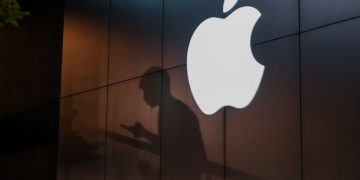Tragedy Strikes as OceanGate Submarine Passengers Presumed Dead
In a heartbreaking turn of events, the passengers of the OceanGate submarine expedition are now believed to have tragically lost their lives. The deep-sea exploration mission, which aimed to provide a unique underwater experience, has ended in despair and disbelief.
The OceanGate expedition, a privately funded project, set out to offer daring individuals the opportunity to explore the mysteries of the deep ocean. Participants embarked on a journey aboard a cutting-edge submarine, designed to withstand the immense pressure of the depths.

However, amidst the excitement and anticipation, an unexpected catastrophe unfolded. The submarine encountered a severe malfunction during its descent, resulting in a loss of communication with the surface. Distress signals were sent, but all attempts to establish contact with the passengers were unsuccessful.
Rescue operations were immediately launched, involving a collaborative effort between the OceanGate team, maritime authorities, and specialized underwater rescue units. Despite relentless efforts and extensive search operations, the fate of the submarine’s passengers remains shrouded in uncertainty.
Canadians Bid Farewell to News on Facebook
In a significant development impacting the digital news landscape, Canadians will soon bid farewell to accessing news content on Facebook. The social media giant’s decision to remove news from its platform in Canada marks a notable shift in the way users consume and interact with news articles online.
Facebook will no longer display news articles from Canadian publishers on its platform. This decision comes in response to the ongoing disagreement between Facebook and the Canadian government regarding fair compensation for news content shared on the platform.
The clash between Facebook and the Canadian government revolves around the implementation of a mandatory code, known as the News Media Bargaining Code. The code requires digital platforms like Facebook to negotiate payment terms with news publishers for the use of their content. However, Facebook has been resistant to comply with the regulations, arguing that it already drives significant traffic to news websites without direct financial compensation.
As a result, Facebook has chosen to remove news content from its platform in Canada altogether, impacting how users in the country discover and engage with news articles. This move raises concerns about the accessibility and reach of news sources, as Facebook has been a significant channel for news consumption for many Canadians.
eSafety Puts Elon Musk on Notice
The Australian eSafety Commissioner has issued a notice to Elon Musk, the high-profile CEO of Tesla and SpaceX, bringing his online activities and social media presence under scrutiny. The move by eSafety highlights concerns regarding Musk’s online conduct and its potential impact on public safety and well-being.
The eSafety Commissioner, an Australian government agency responsible for promoting online safety, has expressed concerns about Musk’s Twitter behavior, which has often been characterized by controversial and provocative statements. The notice serves as a warning and an indication that Musk’s online activities will be monitored closely.

Musk, known for his unfiltered and sometimes contentious tweets, has amassed a large following on Twitter, where his posts have garnered significant attention and occasionally stirred controversy. The eSafety Commissioner aims to ensure that Musk’s online conduct aligns with established standards of responsible digital citizenship, particularly when his platform has such a wide reach and influence.
The notice sent to Musk by the eSafety Commissioner underscores the importance of maintaining a safe and respectful online environment. It serves as a reminder to high-profile individuals, including those in influential positions like Musk, to exercise caution and consider the potential consequences of their online statements.
Hearing Commences for Microsoft’s Acquisition of Activision Blizzard
The highly anticipated hearing regarding Microsoft’s proposed acquisition of gaming giant Activision Blizzard has officially commenced. This landmark event marks a crucial step in the approval process, as regulatory authorities carefully evaluate the potential implications and benefits of this monumental deal within the gaming industry.
Microsoft, one of the world’s leading technology companies, announced its intention to acquire Activision Blizzard, a renowned publisher and developer of popular video games, earlier this year. The proposed acquisition has since attracted significant attention and scrutiny from industry experts, gamers, and regulatory bodies alike.

During the hearing, representatives from Microsoft and Activision Blizzard will present their case, outlining the strategic rationale behind the merger and emphasizing the potential positive outcomes for both companies and the gaming community at large. The hearing will also provide an opportunity for regulatory authorities to examine any potential concerns related to competition, market dynamics, and consumer welfare.
If the acquisition is approved, Microsoft would significantly expand its presence in the gaming industry, further strengthening its Xbox gaming division. Activision Blizzard’s vast portfolio of popular franchises, including “Call of Duty,” “World of Warcraft,” and “Candy Crush Saga,” would fall under Microsoft’s umbrella, presenting new opportunities for innovation, collaboration, and cross-platform integration.
The outcome of this hearing will play a pivotal role in shaping the future of the gaming industry and the experiences of millions of gamers worldwide. Should the acquisition be approved, it would undoubtedly reshape the competitive landscape, setting the stage for intensified competition between industry giants.
TPG Takes Jabs at NBN Co, Questioning Broadband Service Quality
TPG, one of Australia’s prominent telecommunications companies, has launched a scathing critique against NBN Co, the company responsible for the National Broadband Network (NBN). TPG’s comments raise concerns about the quality and reliability of broadband services provided by the NBN, adding fuel to the ongoing debate surrounding the national network’s performance.
In a recent statement, TPG expressed dissatisfaction with the NBN’s infrastructure and performance, suggesting that the network has failed to deliver the promised high-speed and reliable broadband connections to consumers across the country. TPG’s critique comes as the company faces increasing competition in the broadband market and seeks to differentiate its services.
TPG’s remarks question the effectiveness of the NBN’s technology and its ability to meet the growing demand for fast and reliable internet access. The telecommunications provider claims that its own infrastructure, including fiber-to-the-building (FTTB) and fiber-to-the-premises (FTTP) networks, offers superior performance and a more consistent user experience compared to the NBN’s offerings.

The criticism from TPG adds to a chorus of concerns raised by other industry players and consumers regarding the NBN’s performance, particularly in terms of connection stability and speeds during peak usage times. Critics argue that the NBN’s reliance on a mix of technologies, including fiber-to-the-node (FTTN) and hybrid fiber-coaxial (HFC), has contributed to inconsistent service quality across different regions.
The ongoing debate between TPG and NBN Co underscores the complexities and challenges associated with delivering a nationwide broadband network. As the demand for faster internet speeds and reliable connectivity continues to grow, industry players are under pressure to meet these expectations and provide an optimal online experience for customers.













